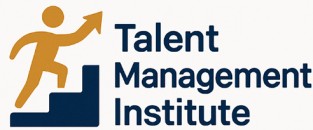The Importance of Pay Equity in Talent Management
Why Pay Equity Matters in Today's Workplace
In the evolving landscape of talent management, pay equity has emerged as a critical component. Ensuring that employees receive fair and equal compensation is not just a matter of compliance; it's a cornerstone of ethical business practices. Pay equity plays a significant role in attracting and retaining top talent, as well as fostering a culture of trust and transparency within organizations.
Building a Foundation for Trust and Transparency
Organizations that prioritize pay equity demonstrate their commitment to fairness and transparency. This commitment helps build trust between the company and its employees, leading to improved morale and job satisfaction. When employees feel valued and fairly compensated, they are more likely to be engaged and productive. Implementing equal pay practices also reduces the risk of pay discrimination and helps close the wage gap.
The Role of Data and Analysis
To achieve pay equity, companies must conduct thorough equity analysis and audits. This involves examining pay data to identify any discrepancies in compensation across different job profiles and employee demographics. By leveraging data-driven insights, organizations can develop an effective equity plan that addresses any existing pay gaps. This proactive approach not only ensures compliance with legal standards but also aligns with best practices in workplace equity.
For those interested in delving deeper into the financial aspects of talent management, exploring the advantages of human resource accounting can provide additional insights into how organizations can strategically manage their human capital. For more information, visit this resource.
What Does a Pay Equity Consultant Do?
Unveiling the Responsibilities of a Pay Equity Consultant
In the realm of talent management, pay equity consultants play a pivotal role in ensuring that organizations maintain fairness and transparency in their compensation practices. Their work revolves around conducting comprehensive equity analysis to identify and address wage gaps and pay disparities within a company.
One of the primary responsibilities of a pay equity consultant is to perform detailed pay data analysis. This involves examining the organization's compensation structures and identifying any discrepancies that may exist between different employees or job roles. By scrutinizing pay practices, they help ensure that all employees receive equal pay for equal work, fostering a culture of workplace equity.
Pay equity consultants also assist organizations in developing and implementing effective equity plans. These plans are designed to address existing pay discrimination and establish best practices for future pay decisions. Through equity audits, they provide insights into how a company's pay structures align with industry standards and legal compliance requirements.
Moreover, consultants work closely with clients to promote pay transparency. By advocating for clear communication regarding total rewards and compensation policies, they help build trust between employees and management. This transparency is crucial for enhancing employee morale and performance, as it assures employees that their contributions are valued and fairly compensated.
For organizations seeking to enhance their talent management strategies, understanding the role of a pay equity consultant is essential. These professionals not only address immediate pay equity concerns but also guide companies towards sustainable and equitable pay practices. To delve deeper into the responsibilities of talent management professionals, you can explore more about talent acquisition manager job responsibilities.
How Pay Equity Consultants Drive Organizational Change
Facilitating Organizational Change Through Pay Equity Consulting
The integral role of pay equity consultants in an organization extends beyond just conducting equity analyses; they act as catalysts for organizational change. These professionals guide companies in aligning their pay practices with total rewards strategies that uphold principles of fairness and transparency. By analyzing pay data and identifying wage gaps, they work to ensure compliance with equal pay legislation and promote workplace equity. Pay equity consultants collaborate closely with organizational leadership to review existing compensation structures. This often involves executing thorough equity audits to identify any pay discrimination and ensure compliance with laws and industry best practices. The consultants recommend adjustments to job roles and compensation packages, thus aiding companies in maintaining competitive employee profiles. In many organizations, revealing pay gaps involves examining complex compensation systems. Consultants provide a well-structured equity plan to bridge these divides, fostering environments where employees feel valued and fairly remunerated. Their expertise in transparency aligns with modern trends emphasizing open communication about pay decisions. This form of consulting significantly impacts corporate culture and employee engagement. By ensuring equitable pay, organizations can drive positive change, resulting in improved morale and performance. Additionally, clients of pay equity consulting services benefit from a refreshed focus on living wage standards and internal compliance. In a world where workplace equity is increasingly critical, embracing evolved HR practices can be transformative. Ultimately, the contributions of pay equity consultants propel organizations toward a more equitable and effective future. For further insights on culture's impact on talent management, explore more in depth here.Challenges Faced by Pay Equity Consultants
Overcoming Barriers in Pay Equity Consulting
In the realm of talent management, pay equity consultants play a critical role in ensuring fairness and transparency in compensation. However, they encounter several challenges in their mission to foster workplace equity. Addressing these obstacles requires both expertise and strategic planning. One significant hurdle is the collection and analysis of extensive pay data. Accurately assessing compensation across a company involves sifting through complex layers of payroll information, employee profiles, and historical wage data. Ensuring compliance with equal pay laws and practices necessitates a meticulous equity analysis. This often involves specialized tools and analytical methodologies, which require in-depth understanding and experience. Consultants also face the challenge of altering established pay practices in organizations that might be resistant to change. Many companies are unaccustomed to the transparency required for effective equity audits and fear the implications of revealed pay gaps. Addressing these concerns requires consultants to possess not only analytical skills but also persuasive communication strategies to advocate for necessary changes. Cultural and systemic biases present additional challenges. Pay discrimination may be deeply rooted within an organization's structure. Pay equity consultants must be adept at identifying such biases and recommending ways to mitigate them, which often includes advocating for changes in total rewards systems and implementing equity plans to support equal compensation and opportunity. Lastly, building trust with clients can be a hurdle. Establishing credibility as a consulting group requires clear demonstration of past successes and the ability to navigate the sensitive nature of pay transparency issues. Consultants must align their recommendations with the strategic goals of the organization to gain buy-in from decision-makers, ensuring the execution of effective and sustainable equity strategies. In overcoming these challenges, pay equity consultants drive crucial organizational change, paving the way for improved employee morale and performance. They help shape the fundamental practices that promote fair compensation, ultimately contributing to a healthier, more equitable work environment.The Impact of Pay Equity on Employee Morale and Performance
The Ripple Effect of Pay Equity on the Workforce
Achieving pay equity within an organization is more than just a compliance checkbox; it profoundly influences employee morale and performance. When employees see their company actively engaging in fair compensation practices, it fosters a culture of trust and transparency. This transparency in pay decisions can lead to increased employee satisfaction and retention, as workers feel valued and recognized for their contributions.
Implementing equal pay practices involves a comprehensive equity analysis, where pay data is scrutinized to identify and address any existing wage gaps. This process not only highlights areas of pay discrimination but also encourages a broader discussion about workplace equity. Organizations that prioritize pay transparency and equity audits are often seen as leaders in promoting fair compensation, which can enhance their reputation and attract top talent.
Moreover, a fair pay structure can significantly boost employee performance. When employees believe they are being compensated equitably, they are more likely to be motivated and engaged in their roles. This, in turn, can lead to improved productivity and a stronger overall company performance. By addressing pay gaps and implementing best practices in total rewards, companies can create a more equitable and thriving workplace.
However, achieving pay equity is not without its challenges. Organizations must be willing to invest in thorough compensation analysis and be open to adjusting their pay practices to ensure fairness. This commitment to equity requires a strategic approach and often the expertise of a skilled pay equity consultant to guide the process effectively.
Selecting the Right Pay Equity Consultant for Your Organization
Finding the Perfect Match for Your Organization
Choosing the right pay equity consultant for your organization is no small feat. It is crucial to find someone who not only understands the intricacies of compensation and equity analysis but also aligns with your company culture and long-term goals. Here are some key factors to consider to ensure you select a consultant that meets your needs:
- Experience and Expertise: Ensure the consultant has a proven track record in pay equity consulting. They should be well-versed in compensation analysis, pay data interpretation, and navigating compliance issues related to pay equity and transparency.
- Approach to Pay Practices: Opt for consultants familiar with best practices and innovative methodologies. Their approach should be comprehensive, considering total rewards strategy and not just isolated statistics.
- Alignment with Organizational Values: Look for a consultant who values workplace equity and equal pay, as these principles are essential for sustainable transformation in pay practices. Their approach should reinforce transparency and data-driven decisions.
- Track Record of Driving Change: Pay equity consultants should be able to demonstrate how they have successfully influenced organizational change in previous roles, addressing pay discrimination and wage gaps effectively.
- Recommendations and References: Engage with client testimonials and references to gauge satisfaction with completed equity audits. This feedback often provides insight into the consultant’s ability to work collaboratively and effectively within different organizational contexts.
Your choice of a pay equity consultant can significantly impact the morale and performance of employees, as well as your organization's reputation. Taking the time to thoroughly vet potential consultants is not just a matter of compliance but a commitment to fostering equity and fairness across your company. With the right consultant, your organization can make informed pay decisions that promote transparency and equal opportunities.













